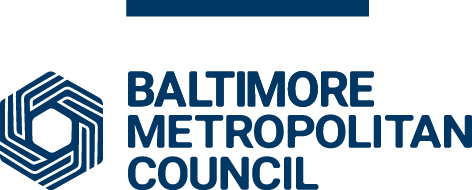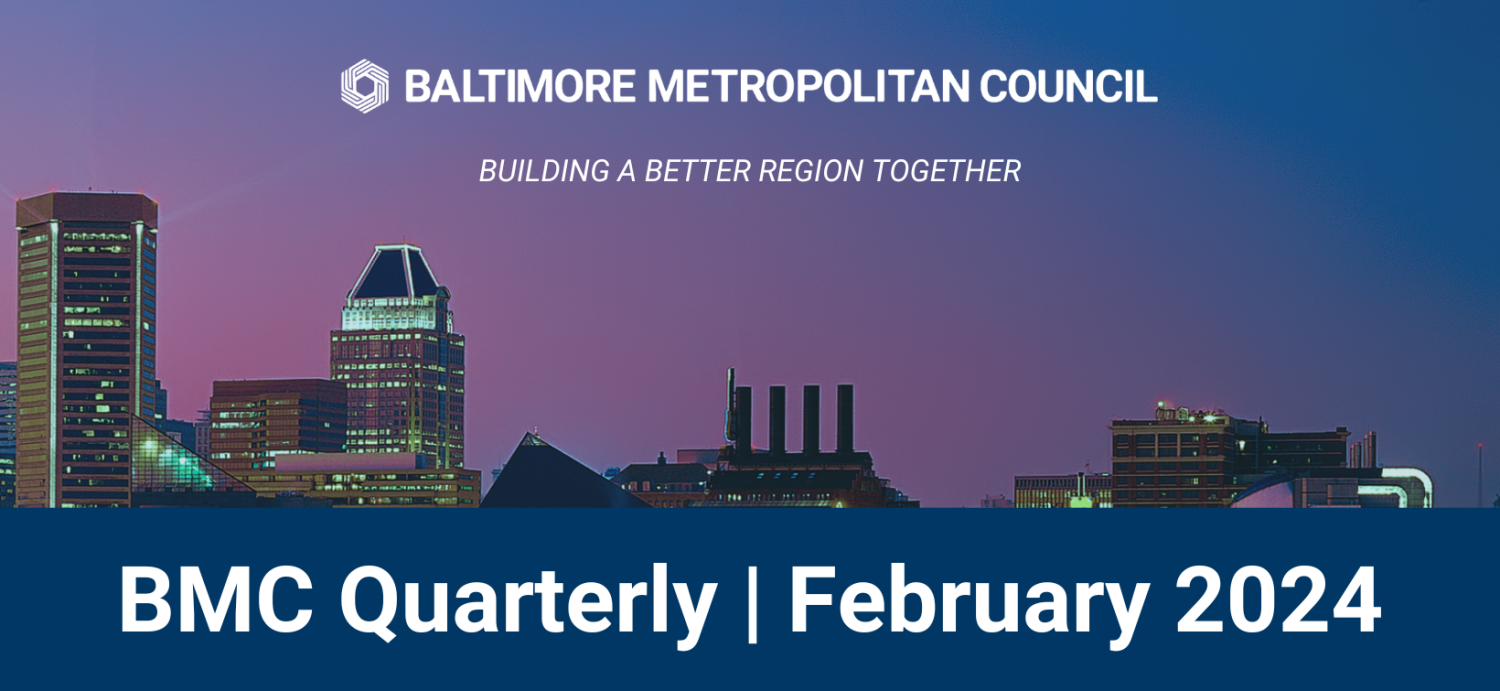
FROM OUR EXECUTIVE DIRECTOR
Thank you for reading BMC Quarterly, a brief overview of the Baltimore Metropolitan Council’s activities and initiatives to keep you in the loop.
We had a busy summer at BMC. Our team has worked to develop a Comprehensive Climate Action plan, a regional strategy for reducing pollution and pursuing sustainability. We worked with the Maryland Transit Administration to host the Baltimore Regional Transit Commission for site visits. Meanwhile, the Baltimore Regional Transportation Board approved a $4.52 billion Transportation Improvement Program and $18.8 million in grant funding for transportation projects and achieved federal certification. The Cooperative Purchasing Committee’s Energy Board secured $29.2 in savings on electricity spending.
This is just a snapshot of some of our recent work. We are proud to continue building a better region together, and I am grateful to our staff and partners for taking on this work. I hope you’ll read on to learn more about our programs.
Sincerely,
Mike Kelly
Executive Director
Baltimore Metropolitan Council
TOP STORY
Comprehensive Climate Action Plan
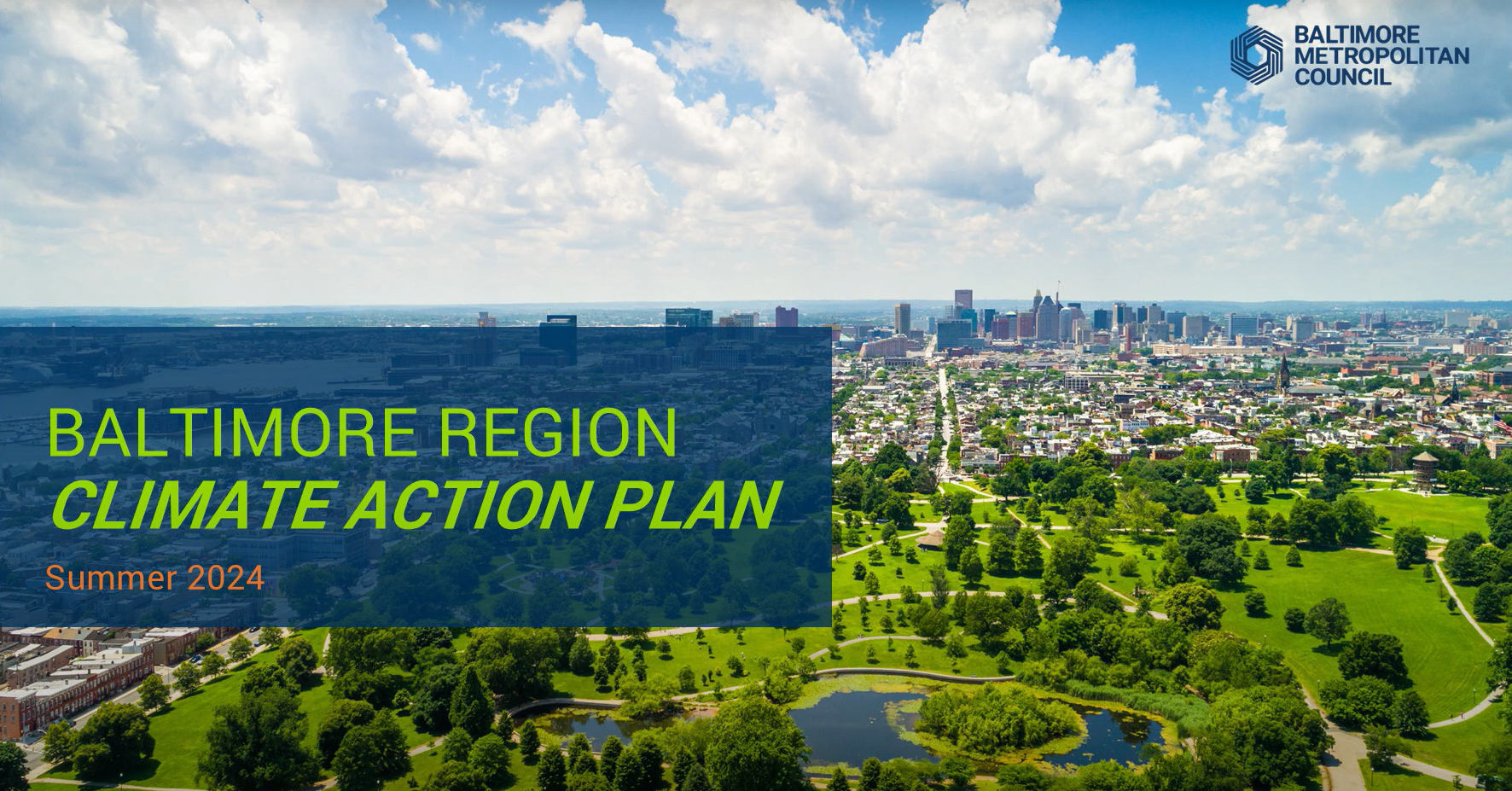
We are developing our Comprehensive Climate Action Plan (CCAP), a strategy shaping future climate action in the region. Funded by the U.S. Environmental Protection Agency’s Climate Pollution Reduction Grants program, the CCAP seeks to inform and coordinate action from local and state agencies toward reducing pollution and ensuring a more sustainable future.
Residents throughout the region are invited to complete a brief survey to weigh in on issues related to the CCAP. This feedback will inform additional planning efforts later this year and next year, and help local jurisdictions respond to the unique challenges and opportunities in their communities. The project team will also host community meetings for you to learn more, ask questions and share your thoughts.
“We want to make sure that the plan not only addresses environmental issues but also reflects the needs and values of our region’s residents,” said Executive Director Mike Kelly. “We encourage everyone to join us in advancing climate action.”
Learn more at publicinput.com/climateplan.
IN OTHER NEWS
BRTC Transit Tours
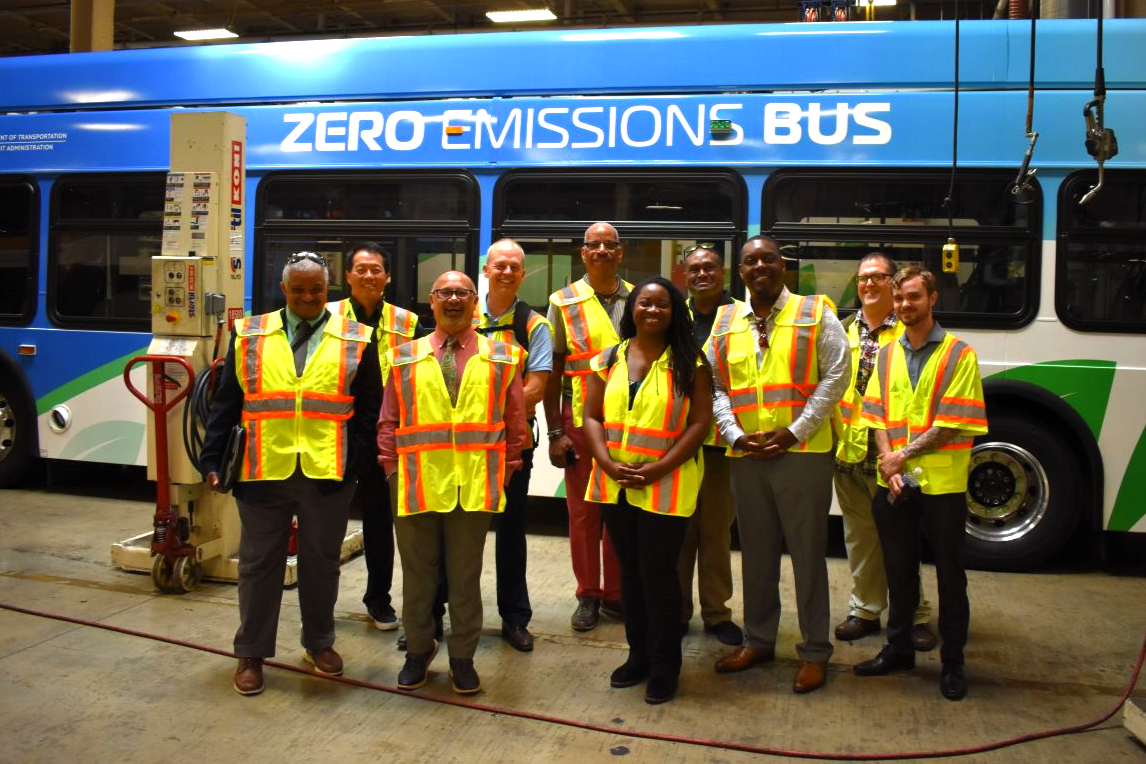
Over the summer, the Maryland Transit Administration hosted members of the Baltimore Regional Transit Commission at its Kirk Avenue Bus Maintenance Facility and Operations Control Center to learn more about what it takes to run the region’s bus, light rail and metro systems. The tour included a briefing on the new zero-emission buses joining the fleet thanks, in part, to funding approved by our Baltimore Regional Transportation Board.
The Commission reconvened earlier this month after a summer recess, and will next meet on Friday, October 4.
BRTB Funding Approvals
The Baltimore Regional Transportation Board (BRTB) recently approved nearly $18.8 million in Federal Highway Administration (FHWA) grant funding for 18 carbon reduction and alternative transportation projects.
Of the approved funding, $14.1 million from the FHWA’s Carbon Reduction Program will go toward projects such as energy-efficient streetlights, electric vehicle fleet upgrades and charging, improved traffic management and zero-emission buses. Meanwhile, $4.7 million from the FHWA’s Transportation Alternatives Set-Aside Program will go toward targeted projects to design or implement improvements to bicycle and pedestrian facilities, including crosswalks, sidewalks, bike lanes and shared-use paths.
Housing Hot Spots
Sites in Ten Hills, Edgewood, and South Baltimore are emerging as the ‘hot spots’ for residential development in the Baltimore region, according to our latest Residential Building Permit Activity Hot Spot Report. In 2023, 7,298 residential units were permitted in the Baltimore region. This data can help the region’s leaders evaluate trends and implications for the region’s opportunities for wealth-building, homeownership and transportation.
Federal Certification
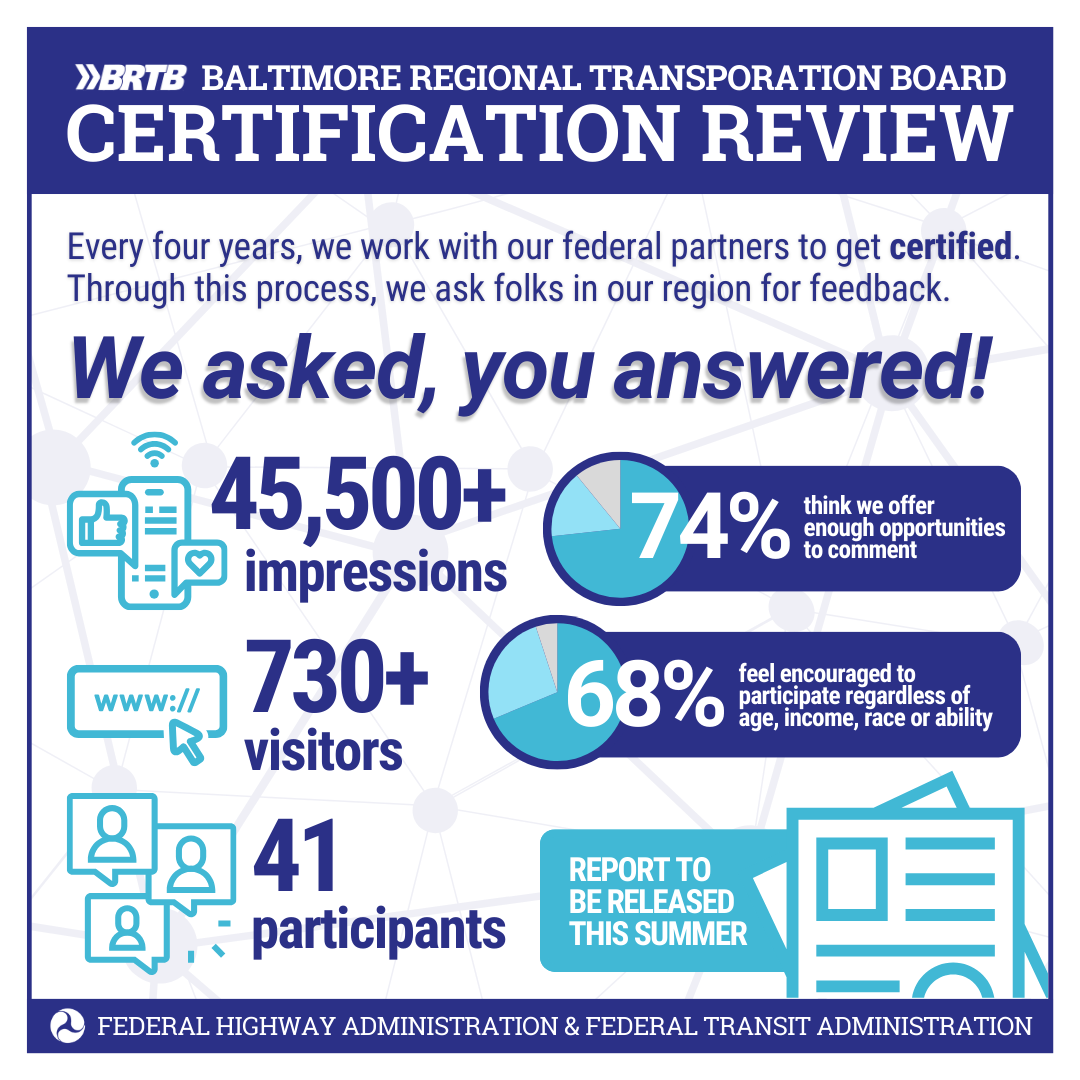
The BRTB recently achieved certification from the Federal Highway Administration and Federal Transit Administration. The process of federal certification takes place every four years and seeks to ensure that the BRTB follows federal rules for planning and outreach. Since the BRTB’s previous certification in 2020, more than 1,750 people weighed in on plans and projects, helping shape the future of the region’s transportation system. The BRTB continues striving to reach more people around the region and bring more voices into the planning process.
BOARD UPDATE
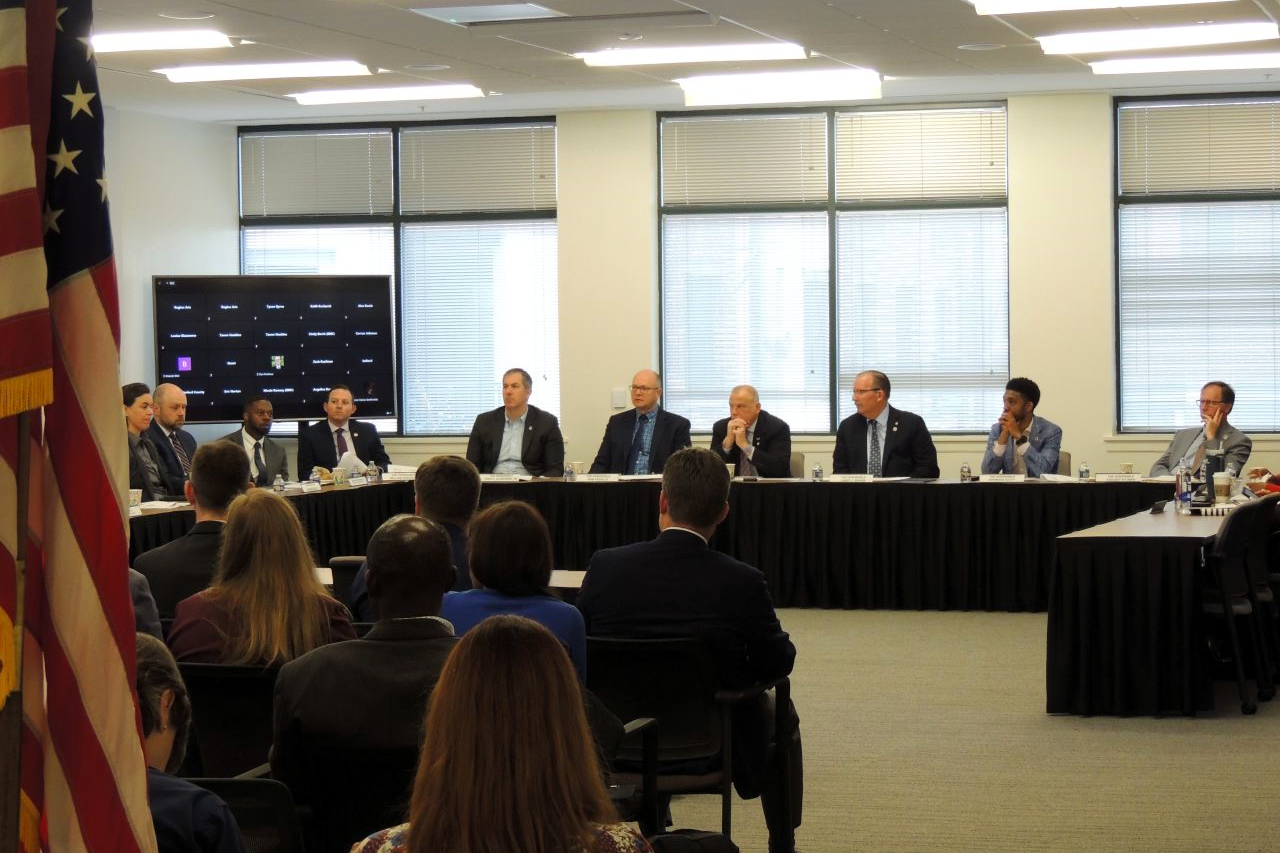
Our board members received a briefing from the U.S. Coast Guard representatives of the Key Bridge Response Unified Command on the Key Bridge collapse response. The discussion included how we can help our communities recover from the disaster as Maryland works toward rebuilding.
Our Board of Directors will next meet on Friday, October 25.
ENGAGEMENT OPPORTUNITIES
Bikeable Baltimore Region
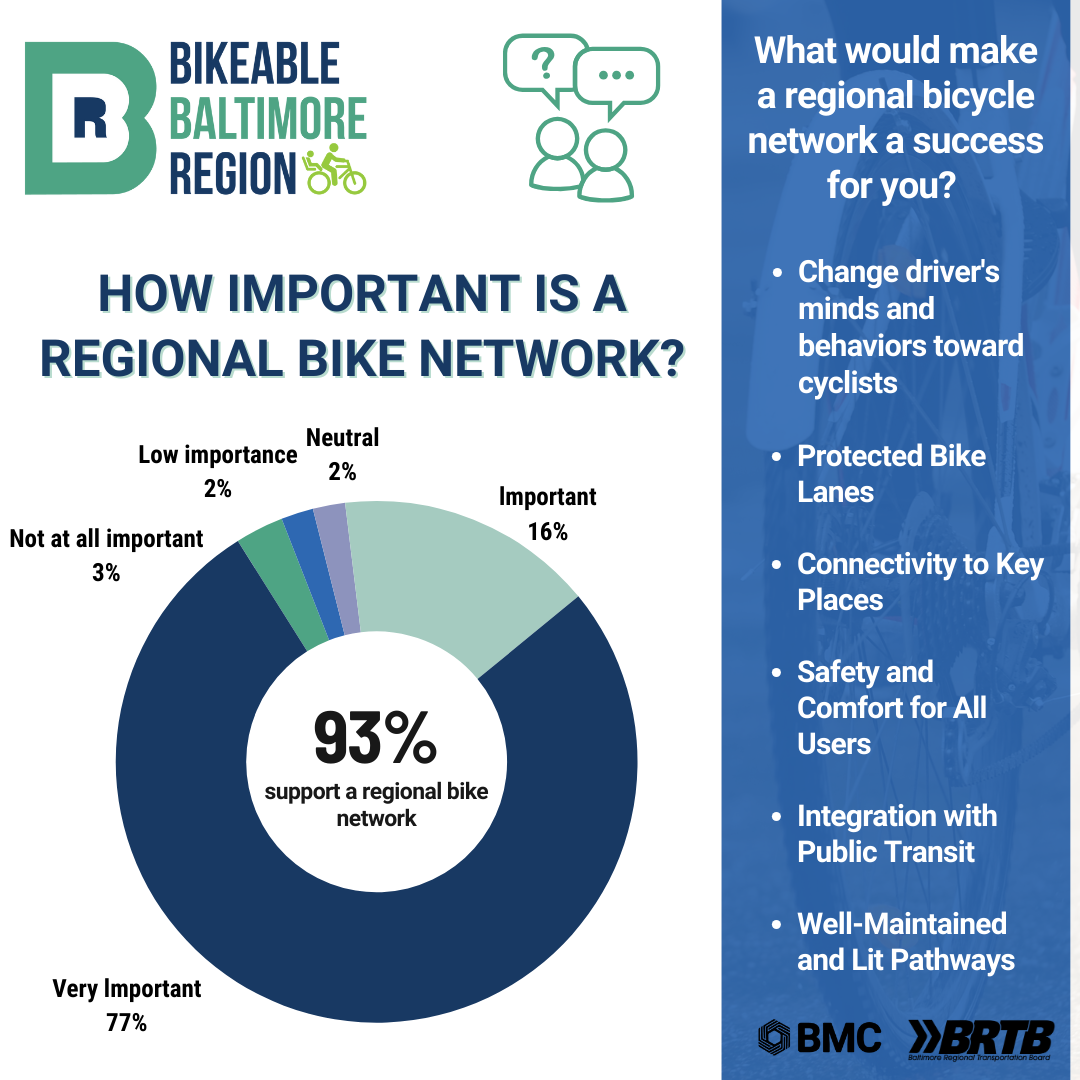
Our Bikeable Baltimore Region project seeks to identify challenges and opportunities in creating the first comprehensive regional bike network. The project does not budget for construction, but will simply identify existing, planned and potential bike facilities that are safe and comfortable for people of all ages, laying the groundwork to connect local communities and provide safe access to transit, schools, work, parks and other destinations.
The initial public comment period was held from May to July, including ten public meetings around the region. Another comment period inviting the public to weigh in on more detailed analysis and plans will open later this year. Learn more and get updates at publicinput.com/BikeBaltoRegion.
Patapsco Regional Greenway: Stoney Run
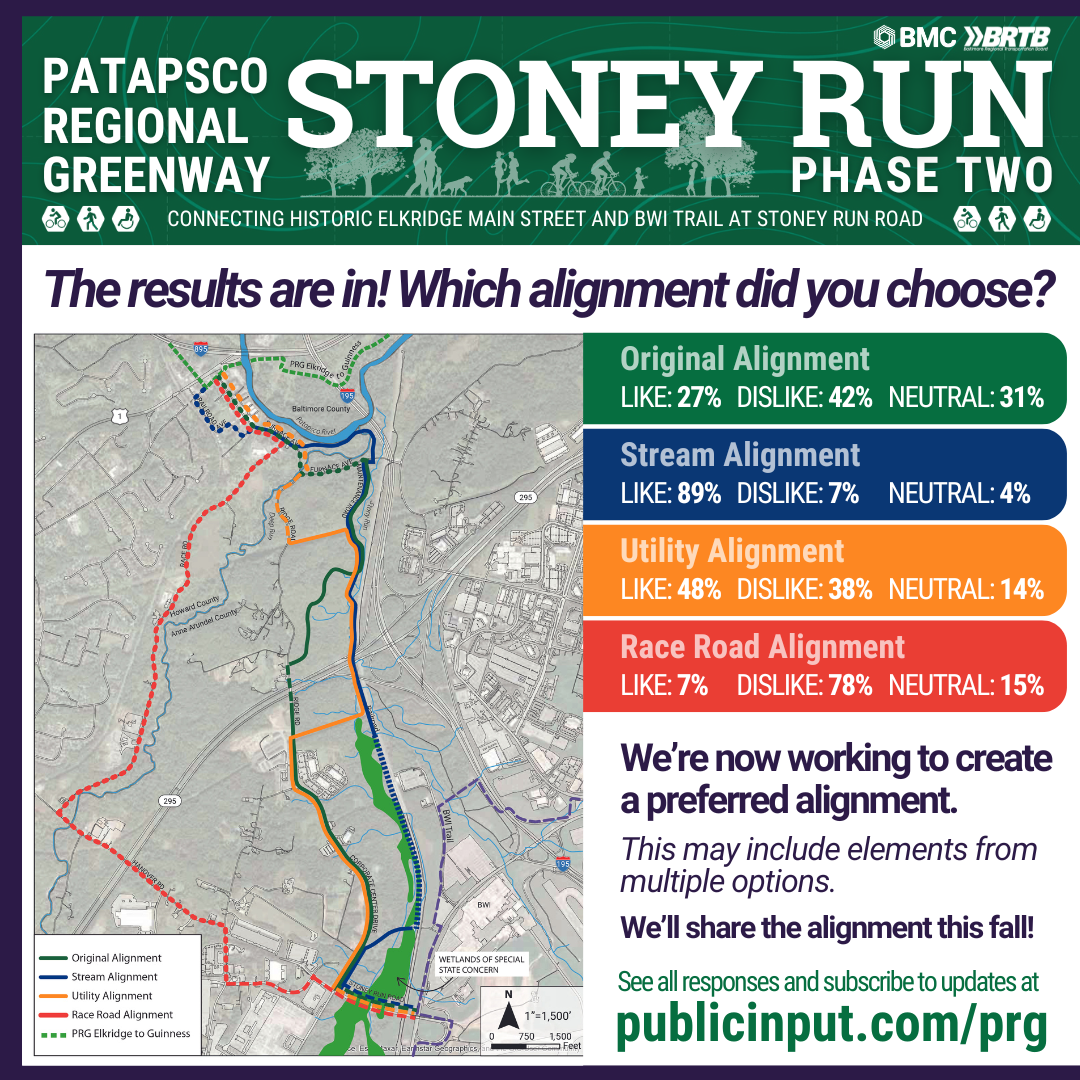
Progress continues on the Patapsco Regional Greenway initiative, which seeks to connect Baltimore’s Inner Harbor with Sykesville in Carroll County via a 40-mile trail network in the Patapsco River valley. This year, we focused on a segment connecting Elkridge Main Street with the BWI Trail at Stoney Run Road.
We shared an initial survey to gather public feedback on the proposed trail and found that 97 percent of over 100 respondents supported the project. During the summer, we hosted a comment period to present four variations of the proposed trail route. From this feedback and our team’s technical analysis, we’re now developing a final proposed route, which we will share with a final comment period later this year before passing along the design plans to agencies in Howard and Baltimore Counties for implementation.
Learn more and subscribe for updates on the project via publicinput.com/prg.
PROGRAM SPOTLIGHT: ENERGY BOARD SAVES $29.2 MILLION IN FY24
The Energy Board, a subcommittee of our Cooperative Purchasing Committee, saved $29.2 million on electricity in the previous fiscal year, bringing its cumulative savings since inception in 2006 to approximately $319 million. As the Energy Board oversees energy procurement for participants, including city and county governments, public schools and community colleges, the savings free up taxpayer money for other investments.
Learn more about the Energy Board at baltometro.org/purchasing/committees/energy-board.
UPCOMING MEETINGS
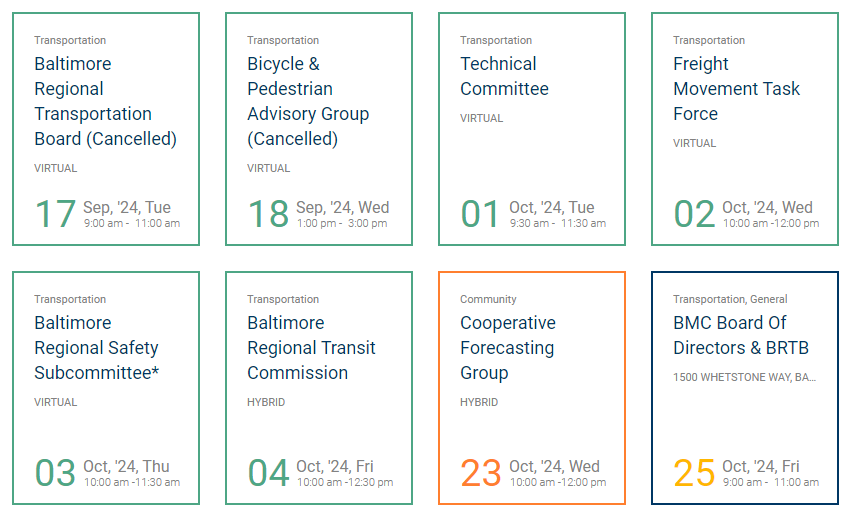
Thanks for reading this edition of BMC Quarterly. Click here to subscribe to future editions.
#
Baltimore Metropolitan Council (BMC) works collaboratively with the chief elected officials in the region to create initiatives to improve quality of life and economic vitality. As the Baltimore region’s council of governments, BMC hosts the Baltimore Regional Transportation Board (BRTB) and supports local government by coordinating efforts in a range of policy areas including emergency preparedness, housing, cooperative purchasing, environmental planning and workforce development.
